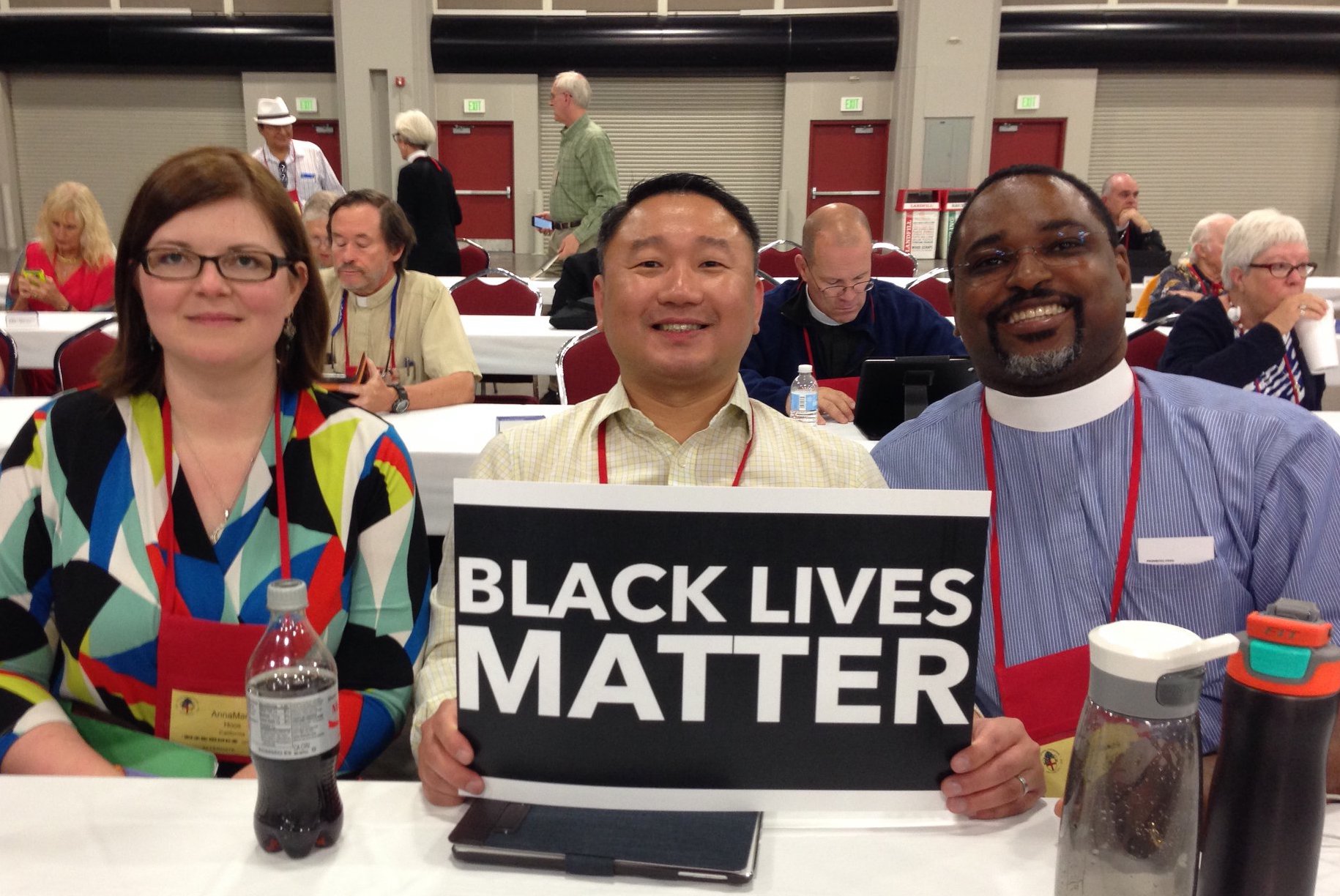A lot has been going through my mind in the past few weeks as a person of color. The death of George Floyd reveals the fault line of our country’s original sin, and this is a moment of reckoning of our nation’s soul. I hope the outrage we are experiencing can begin to engage this nation in honest conversation about racism. But more importantly, I am hoping to have an honest conversation with all my friends who are Christians and especially those within the Episcopal Church which I call home. We need to start talking about dismantling institutional and systemic racism within the church.
Just as all politics are local, dismantling racism needs to begin at home and in our churches. Here are some areas for us to take a hard look at. This is by no means a complete and exhaustive list.
- Church attendance and membership. Who is sitting in your pews? Does your congregation reflect the demographics of your community? Even if you are in a predominantly white city or state like Portland, Oregon, where I live, we need to ask ourselves what is God’s dream for our community? Is it inclusive and diverse, not just in terms of ethnicity but age group, gender, sexual orientation and identity, socio-economic status and people with disabilities (both visible and invisible)?
- Leadership Development: Let’s talk about leadership at all levels in our churches. Do you have an all-white vestry? If so, why? Are there no people of color in your congregation? If there are, do they feel they would be accepted in a position of leadership or are we not intentional in developing diverse leadership? People of color do not want tokenism. There are many of them out there who are gifted and passionate, and you might be surprised what they can bring to the table. It is time to stop using the excuse, “but our church is so white.” Are we mentoring and raising up people of color to serve in diocesan leadership, provincial leadership and churchwide leadership? I have been tremendously blessed to have great mentors who have encouraged me and mentored me to serve in various positions in the church. I continue to serve as a deputy to the General Convention, on Task Forces and committees, and in provincial leadership, diocesan and congregational leadership. But all these would not have been possible if I hadn’t been invited. Many of you out there took a risk on me.
- Music and Liturgy: Again, going back to tokenism. Do we sing “Lift Every Voice and Sing” once a year on Martin Luther King, Jr.’s weekend to pat ourselves on the back and to make ourselves feel good? Or are we challenging ourselves to use every liturgical resource that is available to us so that our worship reflects The Beloved Community. There is more to our musical repertoire than a colonial 1982 Hymnal. Don’t get me wrong. I love our 1982 hymnal but many of those hymns were written by colonizers and do not reflect the spiritual experience of many people of color who are often an oppressed people. How about committing to singing at least one hymn every Sunday from “Lift Every Voice and Sing“? Every Fourth of July, the Vice President of the House of Deputies Byron Rushing reminds us “that many of us do not consider the words — “the founders of this country won liberty for themselves and for us” — in the Independence Day collect to be accurate. Look around your congregations and reflect if all the ancestors of the “us” got their liberty then. This phrase is only possible because slavery was forgotten—or the “us” was not meant to include me.”
- Faith Formation and Institutions of Education: Does our catechesis, adult formation, Sunday school, and forums, etc. offer opportunities to empower people to recognize racism and developing tools to dismantle racism. Or is it just a one-time training that is required by the diocese and the General Convention? While I love Godly Play and I continue to teach Godly Play to our first and second grade children in our church, the curriculum does not include lessons on Martin Luther King, Jr., Rosa Parks, Cesar Chavez, etc. and some of the civil rights leaders. Helping our children embody these stories is important to connect their faith to the sacred stories that they hear week after week. All these lessons form a tapestry that weaves together and ground us in our baptismal covenant. Unlike the Catholic education institutions, many of our Episcopal education institutions reflects classism and elitism, and are only accessible if you belong to a certain class or come from a certain socio-economic background. While many offer scholarships, the high tuition is cost prohibitive to many people of color and we lose the opportunity to provide quality education and break the cycle of generational poverty and the lack of opportunity.
- Stained glass ceiling: Just because we elected an African American Presiding Bishop five years ago, it doesn’t mean racism no longer exists in the church or within the structure of the church. Sexism did not go away when the first female Presiding Bishop, Katherine Jefferts Schori, was elected. The road of dismantling racism is long. The President of the House of Deputies, Gay Clark Jennings once said, “And because we understand that the church must not only act as Good Samaritans to those who are robbed and beaten but also work at the systemic level to make safe the road from Jericho to Jerusalem that is walked by everyone who strives for just and fair societies and full inclusion in the Body of Christ, we pledge to work collaboratively in opposing the legacy of colonialism and its present day manifestations, to stand against all principalities and powers… and to understand that these evils are rooted in ideologies of power and domination that have no place in the church or in our societies.” These word couldn’t be more true in the context of our national and church narrative. We need all of you to use your white privilege to walk with all people of color on our journey from Jericho to Jerusalem.
The people of color need you to speak up, act and work toward transformation because honestly, we are tired. We are tired of having to explain what it is like to be a person of color. We are tired of having to fend for ourselves. We are tired of having to take on the responsibility of educating people about dismantling racism. We are tired of being asked to serve as a tokenism.
Last but not least, some people had asked me whether the phrase “Black Lives Matter” bothers me as an Asian because it suggests that Asian lives don’t matter as much as Black lives. No, it doesn’t make my life less valuable just because I support the Black Lives Matter movement. If my Black siblings have been fighting for their rights and their very own existence since the beginning of this nation’s history and things are still not getting any better, then I know Black lives are still at the very bottom of our society. And when Black lives begin to matter, then all lives matter including the lives of Asian, LatinX, Indigenous, women, LGBTQ, people with disability, the immigrants and all marginalized people.
Alan Murray is a Deputy from the Diocese of Oregon and he also serves as the Peace and Justice Coordinator for Province VIII. He co-chairs Cathedral Life Commission at Trinity Episcopal Church in Portland, Oregon and teaches Godly Play to first and second grade children in his church and serves on the Family Commission. He lives in Portland, Oregon with his husband, Tom and their five-year-old daughter, Elizabeth.



